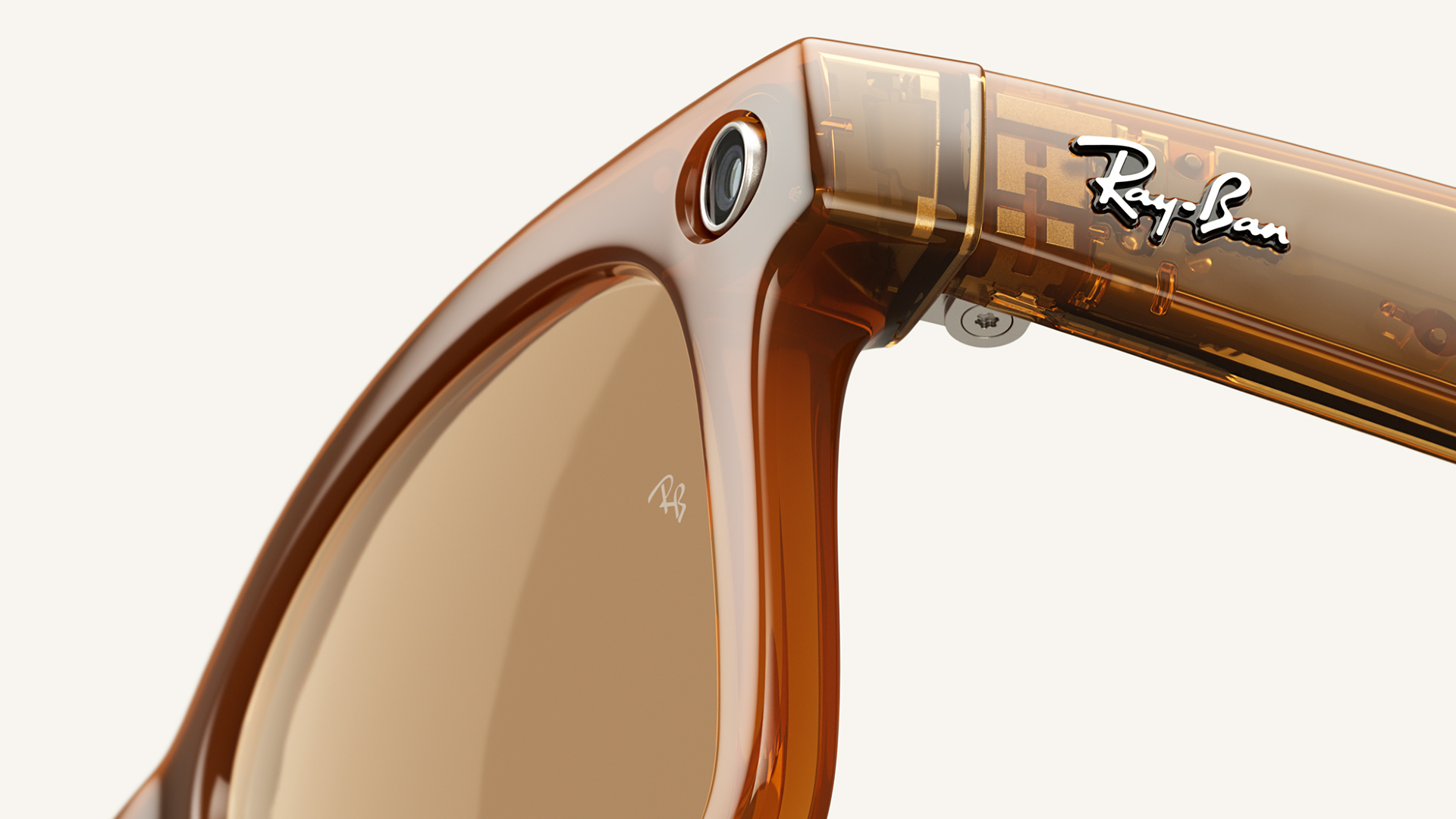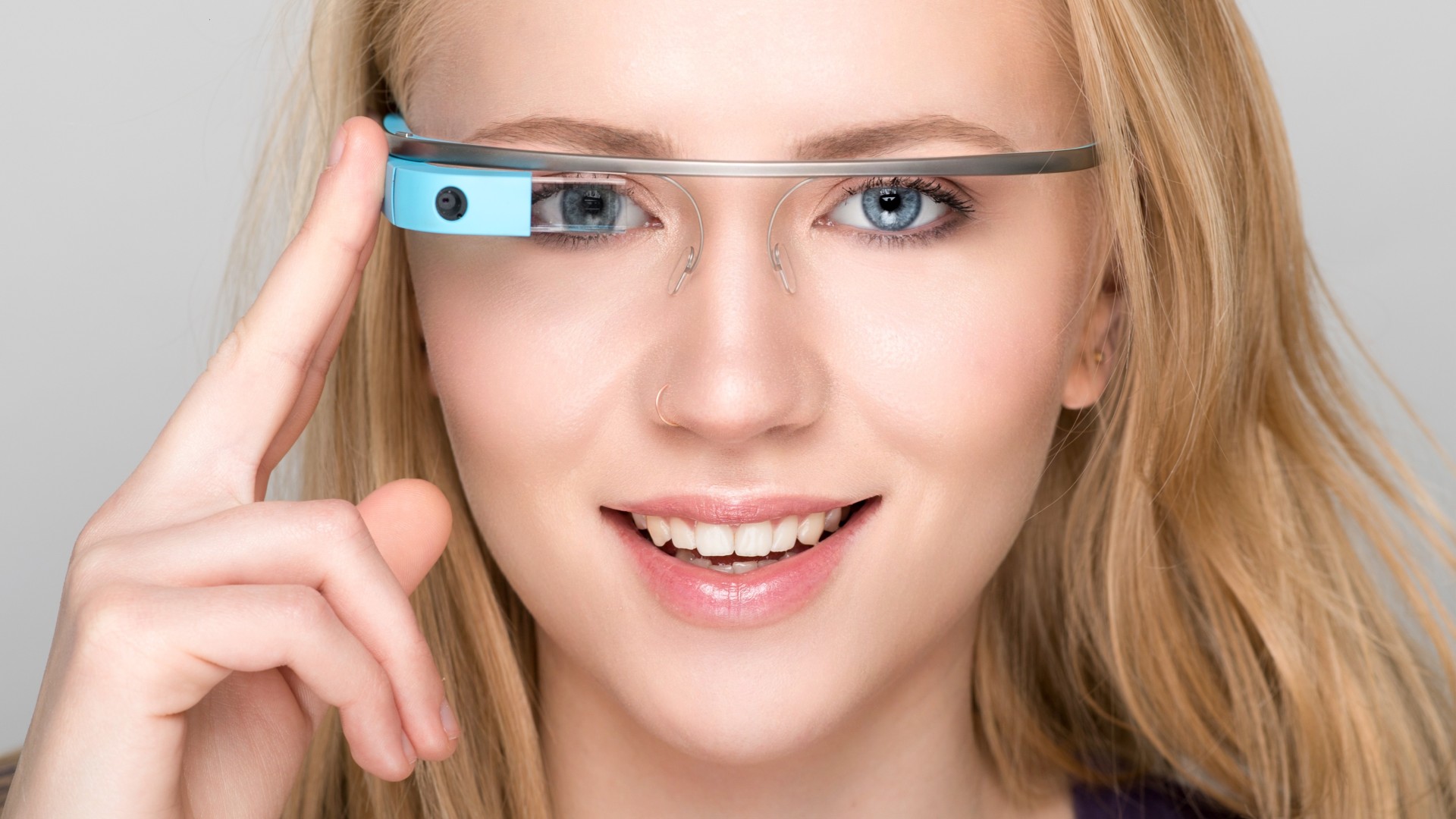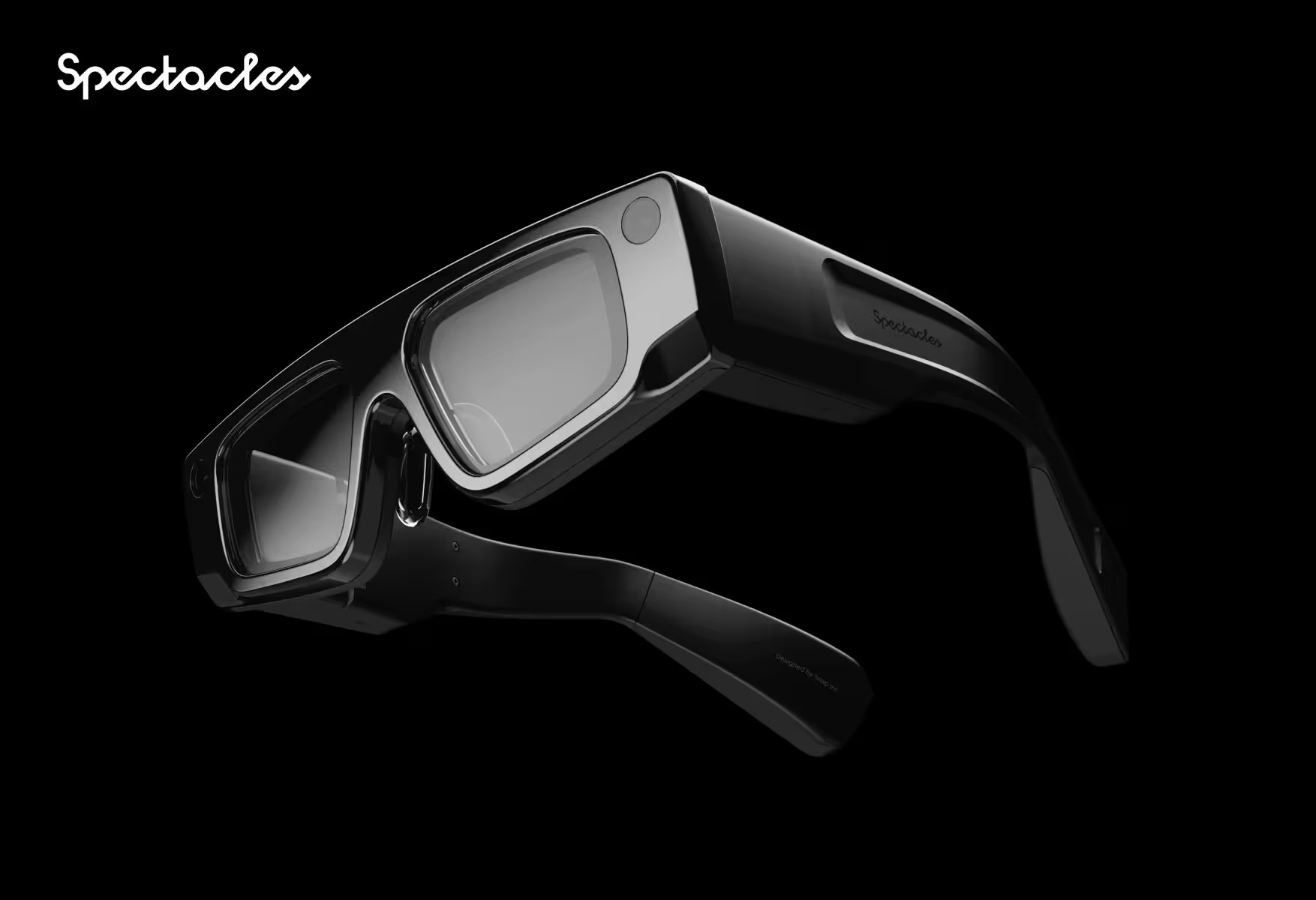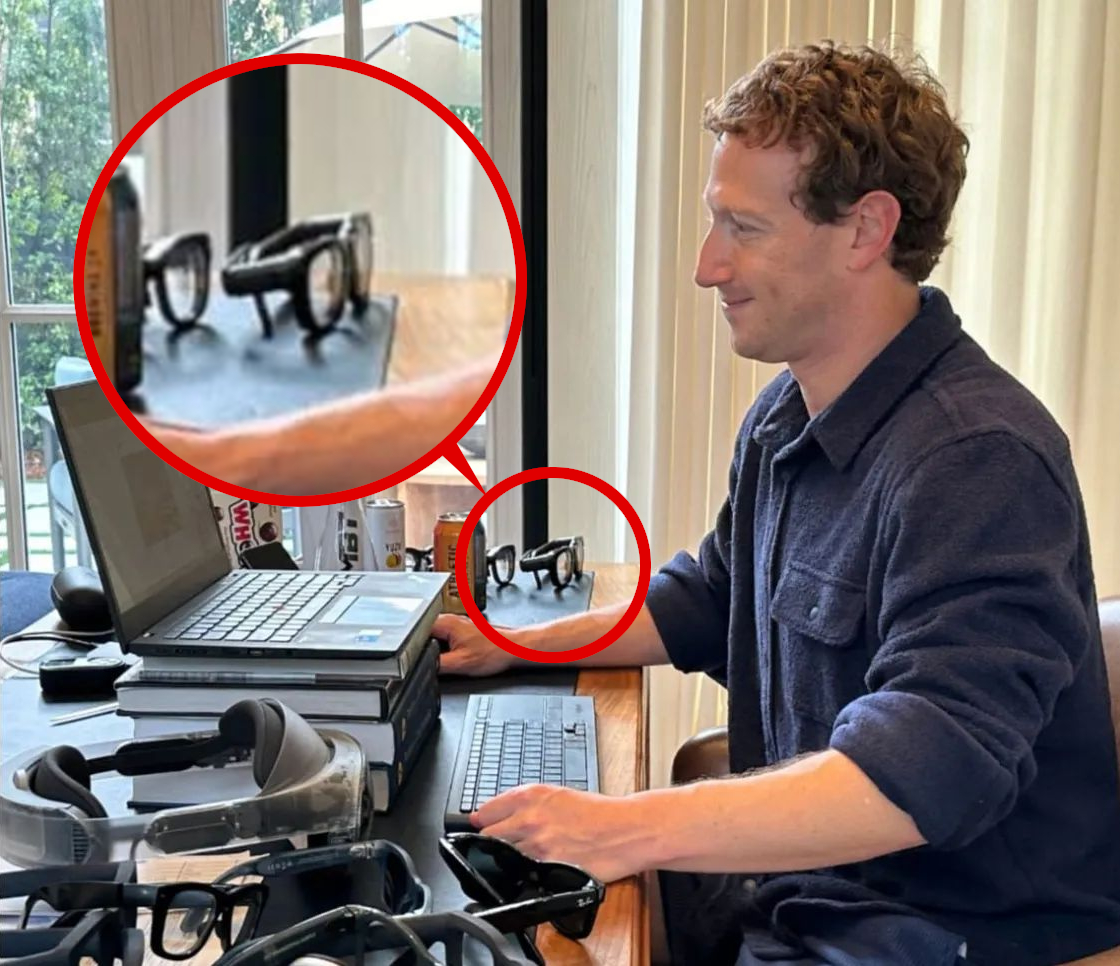Meta secures vital smart glasses partnership ahead of Connect 2024 — Here's why it matters
Getting the Ray-Band back together

Sign up to receive The Snapshot, a free special dispatch from Laptop Mag, in your inbox.
You are now subscribed
Your newsletter sign-up was successful
Earlier this week, luxury eyewear giant EssilorLuxottica announced that it would extend its partnership with Meta in a long-term agreement to collaborate on the development of "multi-generational smart eyewear products."
Both companies have previously worked together to develop 2019's Ray-Ban Stories and 2023's Ray-Ban Meta Smart Glasses. These camera-equipped smart glasses have done much to promote this form of wearable in recent years, with the latter set of frames garnering impressive mainstream approval, which surprised even Meta — with CEO Mark Zuckerberg stating that they had performed “way better than I even hoped they would.”
It's that surprise popularity that may have spurred EssilorLuxottica to extend its agreement with Zuckerberg's Meta, with the two now expected to work alongside one another on several wearables through 2030 and potentially beyond. But what does this partnership mean in the grand scheme of things, and why is it important? Let's dive deeper.
Meta x EssilorLuxottica: What it means
In July, The Financial Times suggested that Google had shown interest in purchasing a stake in EssilorLuxottica with the eventual goal of launching a wearable similar to the Ray-Ban Meta smart glasses, though powered not by Meta AI but by Google Gemini.
That report caused a wave of theories that Google could be about to relaunch one of its most ambitious, yet highly lauded, projects to date: Google Glass — to which a pre-Essilor merger Luxottica was also a partner.
However, a former senior department lead for Google's XR/AR division informed Laptop Mag that the company "has no real vision or ambition in driving the XR space," adding that Google "doesn't want to be responsible for making a product. They want someone else to take on that risk."
This may suggest that a potential Google stake in EssilorLuxottica could be used to steer the company away from Meta, and have the eyewear company shoulder more of the responsibility (and gains) of a smart glasses venture making use of Google's Project Astra foundation for AI wearables.
Sign up to receive The Snapshot, a free special dispatch from Laptop Mag, in your inbox.

Google's interest in EssilorLuxottica could also factor into its ongoing partnership with Samsung and Qualcomm, with the trio reportedly deep into the development of a pair of AR smart glasses.
However, the extension of this partnership indicates that Meta, who was also reportedly prepared to invest in a stake in the luxury eyewear company in response to Google, can bank on the design, quality, and recognition of at least the company's Ray-Ban brand going forward.
Perhaps most importantly, Meta's partnership with EssilorLuxottica will ensure that future smart glasses don't get lost in the wonderful world of emerging AR tech so much that the company can forget about one vital component to the success of its wearables so far: Style.
For smart glasses, looks matter
Perhaps adding a sense of credibility to the claims that Google would be seeking to partner with EssilorLuxottica for a pair of Gemini-powered smart glasses of its own was the suggestion that Meta's future smart glasses wouldn't be Ray-Ban branded or styled.
A report published by The Information in July suggested that Meta's third-generation of smart glasses, dubbed "Hypernova," wouldn't feature EssilorLuxottica's design flare. Reportedly, the company "balked at the design" of Meta's next-gen glasses, which are said to have "a thick frame that current and former Meta employees say is likely to turn off consumers."

We can see from several already available or coming to the market products like the TCL RayNeo X2 or Snap's recently announced Spectacles 5 that the addition of a functioning display causes considerable bulk to the smart glasses form factor — especially when compared to the relatively svelte and traditional stylings of the Ray-Ban Meta smart glasses.
Compressing so much tech into a confined form is one of the major challenges that face smart glasses going forward. And while EssilorLuxottica may have initially "balked" at the design of Meta's upcoming third-generation glasses, this extended partnership could prove to be a major boon for this device and others.
While Meta's tech advances to allow for more smart functionality and wider use cases, EssilorLuxottica, a luxury brand known for its premier looks and style, can hopefully steer the ship and ensure that products make it to market looking their absolute best.
What's ahead for Meta smart glasses?
We still don't know whether Meta's third-generation smart glasses will feature the signature EssilorLuxottica Ray-Ban style or branding, but we wouldn't expect to be waiting too long to find out.
According to a leaked Meta VR/AR roadmap, the company is expected to launch its viewport-touting smart glasses in 2025, potentially in tandem with a neural wristband (that may or may not arrive in the form of a smartwatch) which will allow advanced hand-tracking and gesture interaction with the smart glasses' heads-up-display.
Just how thick of a frame Meta's upcoming smart glasses will eventually sport is unknown. However, in a post to their personal account on Threads, Mark Zuckerberg may have offered eagle-eyed viewers a brief glimpse of what's to come within a photo of him sitting at his workstation from February.
Hidden away atop a busy desk of tech and drinks is an unfamiliar pair of smart glasses frames with a unique hinge that resembles AR glasses offerings from companies like VITURE or XREAL.
When asked about the glasses in question, Zuckerberg stated that he "Will be ready to share more later this year," likely during the upcoming VR/AR/AI-focused Meta Connect 2024 event starting September 25.
However, this year's Meta Connect event is also set to feature a new pair of Meta smart glasses by way of Orion — the company's long-rumored 'true' AR smart glasses prototype.
While Orion won't be going on sale any time soon (with the device not expected to be ready to ship until 2027 at the earliest), it is an opportunity for Meta to showcase the direction they're heading in with these face-worn wearables.
More from Laptop Mag
- Quest 3S, smart glasses, and AI: Here's what to expect from Meta Connect 2024
- Samsung's mixed-reality smart glasses could bring Google's Project Astra to life
- This Meta Connect reveal could change AR and gaming forever — and it's not a VR headset or smart glasses

Rael Hornby, potentially influenced by far too many LucasArts titles at an early age, once thought he’d grow up to be a mighty pirate. However, after several interventions with close friends and family members, you’re now much more likely to see his name attached to the bylines of tech articles. While not maintaining a double life as an aspiring writer by day and indie game dev by night, you’ll find him sat in a corner somewhere muttering to himself about microtransactions or hunting down promising indie games on Twitter.

